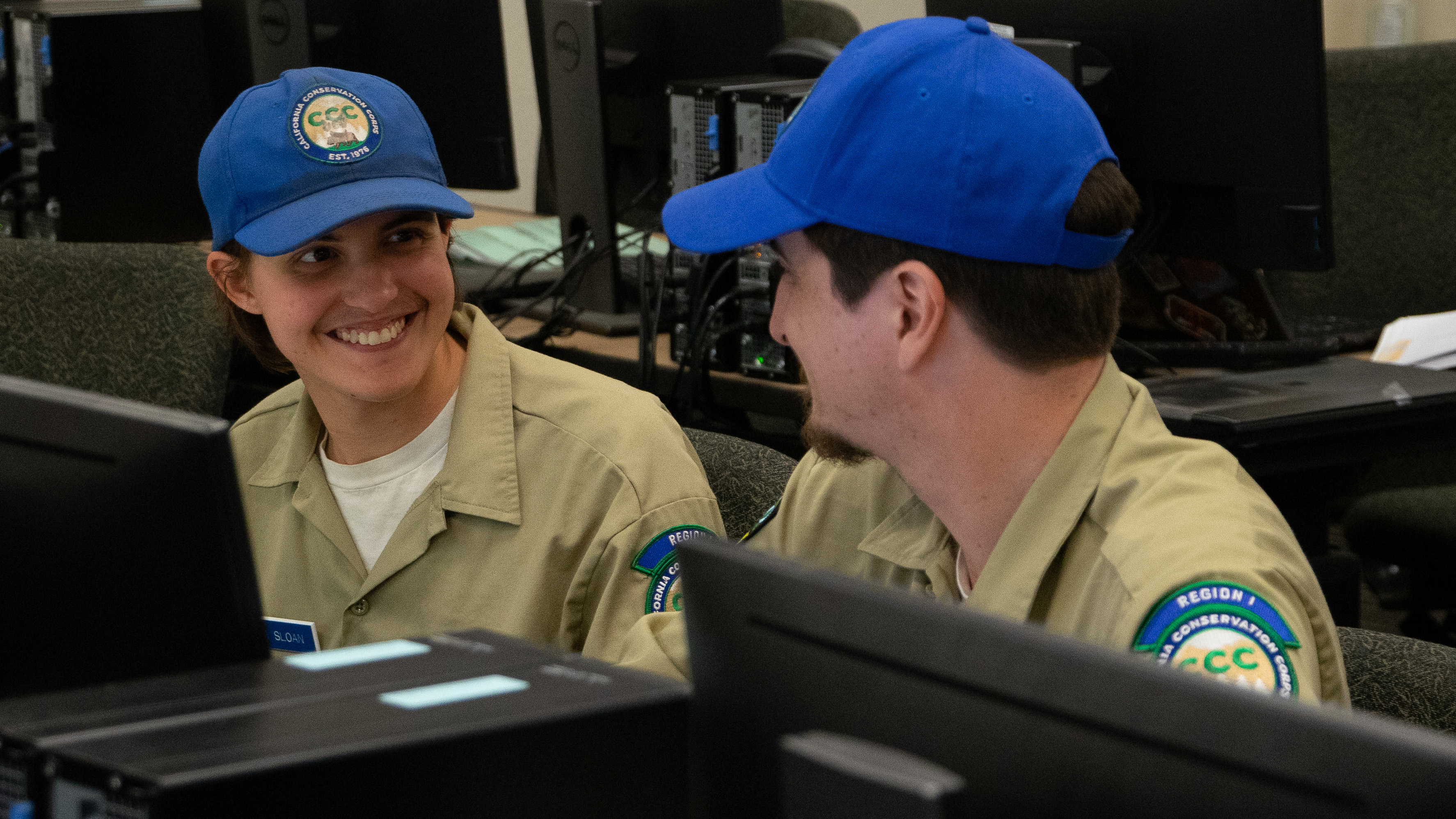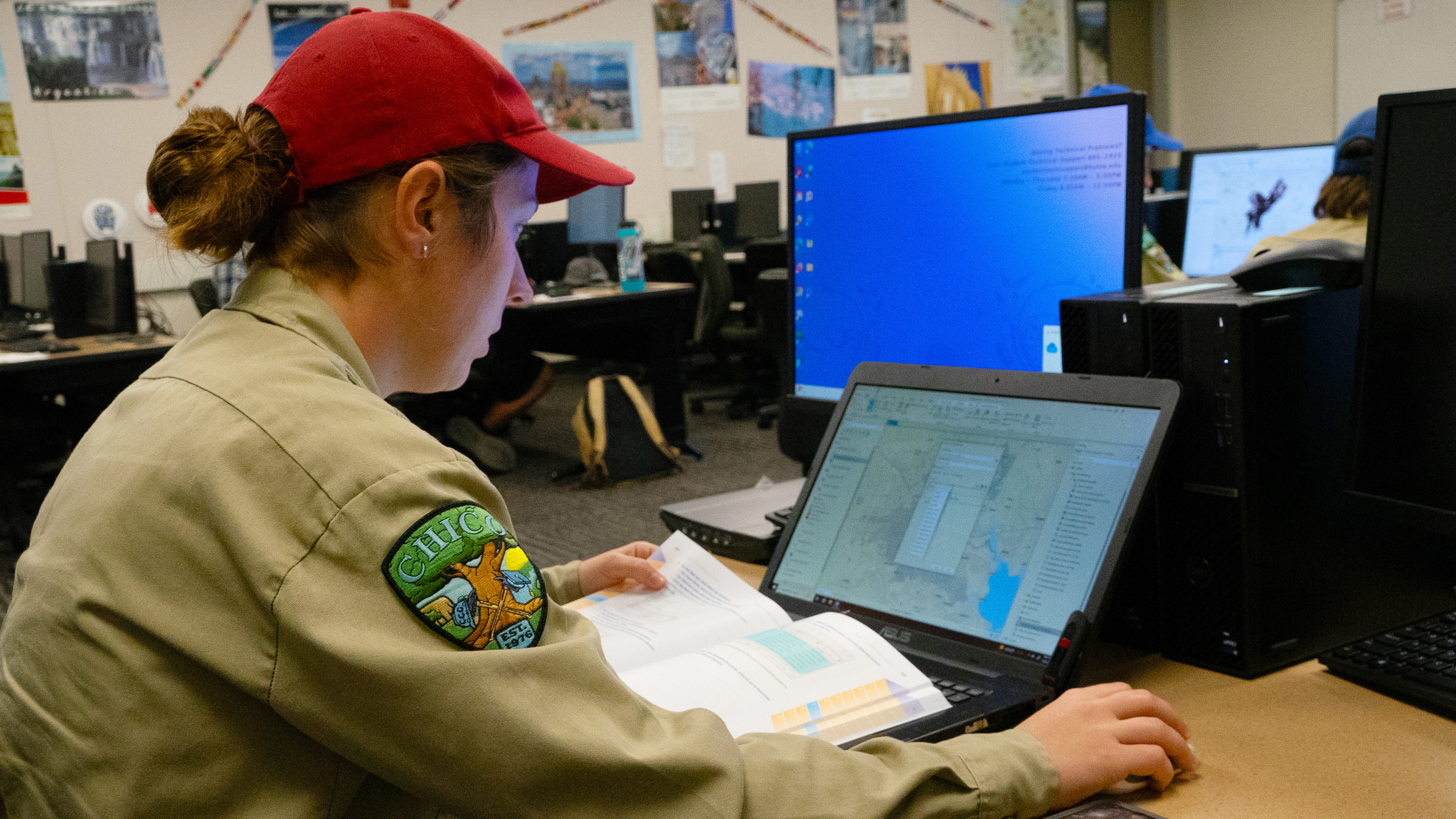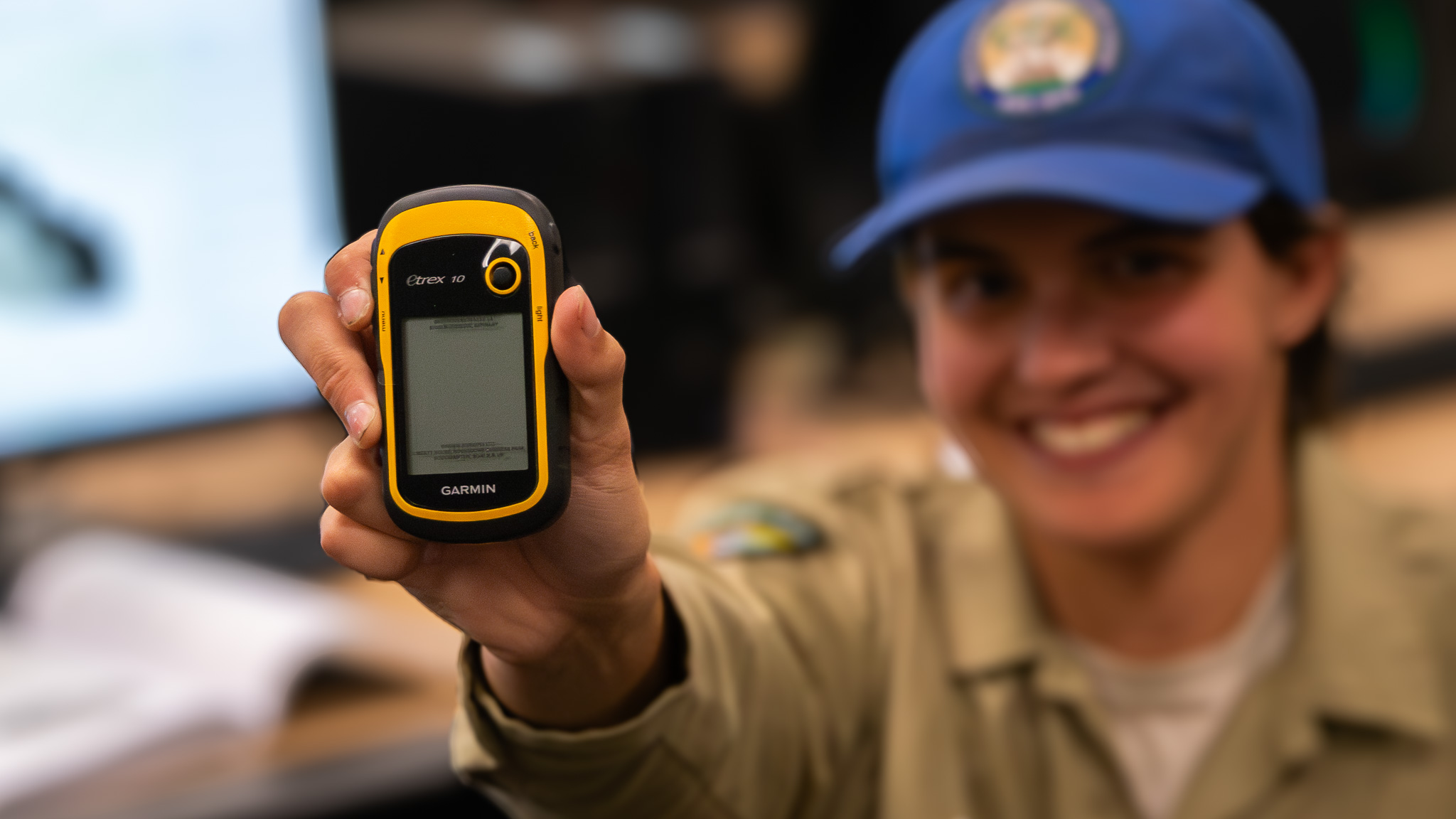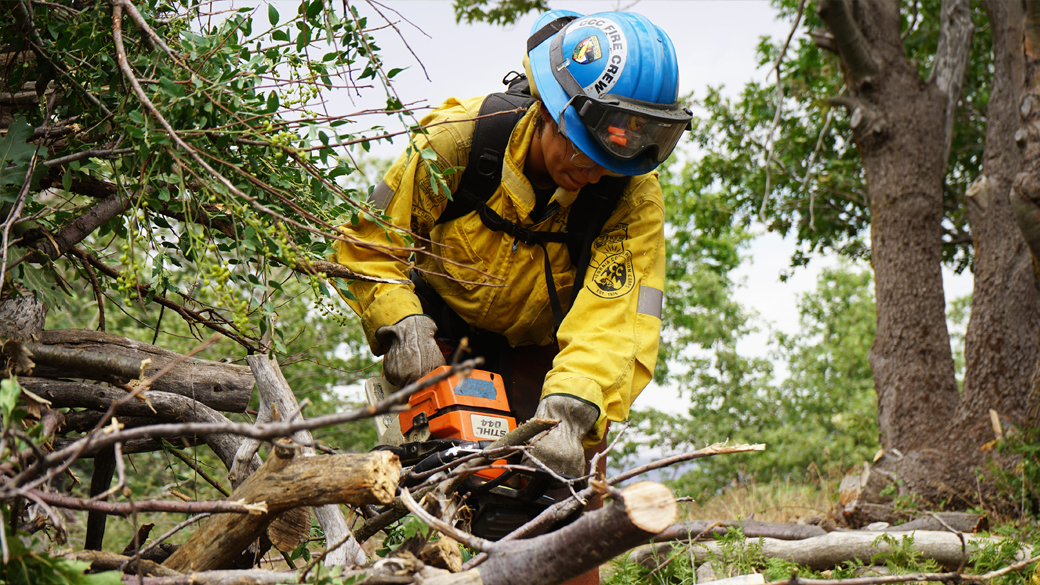Opening the doors to college for Corpsmembers is made possible by the California Community College Chancellor’s Office Institutional Effectiveness Grant, explained Annie Rafferty, Director of Contract Education and Training Development, Butte College. “The College-Corps Partnership Initiative is housed here at Butte College,” said Rafferty. “The partnership is working state-wide to develop collaborative training opportunities with 22 California Conservation Corps centers state-wide and nearby community colleges. The goal is to increase Corpsmembers’ awareness of careers, access to certification, and enrollment in community college coursework during and after completion of their CCC service.”
Sam Sloan, CCC Chico Corspmember, is taking the class and explained that GIS takes data and makes a visual out of it. “Everyone sees maps on their phones and doesn’t realize that all those places you can see, like where the shops are, that’s GIS,” said Sloan. “At its main core, GIS is visualizing data. I’m creative so that’s perfect for me. Making images out of data is really interesting.”

According Butte College GIS Instructor and Natural Resources Management Department Chair, Rick Wittsell, Corpsmembers attend the two-unit Natural Resources 70 – Geospatial Data Applications semester course, consisting of one hour lecture and three hours of lab, one day per week. “I wrote the course in 2009 to give the capabilities of GIS and mapping to those studying wildlife, working in forestry, or anybody else interested in mapping,” said Wittsell. “Students get a lot of information out of this class and that has allowed them to get jobs. It is both indoor and outdoor work with natural resource agencies as well as utilities, police, fire, municipalities, and the military.”
GIS is a skillset that complements much of the work experience Corpsmembers gain in the CCC, according to Andrew Gordon, CCC Program Development Branch Manager. “Our mission is to protect and enhance California’s natural resources and communities, and GIS mapping is a tool used to understand and care for natural systems,” said Gordon. “The other part of our mission is to develop young adults through hard work and education. Taking this GIS class enables Corpsmembers to discover career opportunities related to their CCC experiences building trails, fighting fires, and protecting waterways.”
Caitlin Patterson, CCC Chico Corspmember, saw an opportunity to use the Garmin global positioning system (GPS) devices they’d been given in class for practice on the job. “We’ve been building fire lines and working at Big Chico Creek Ecological Reserve so I thought it would be a great idea to use the GPS to track our progress,” said Patterson. “It was fun to track projects in real time, like the locations of the tree cages we were removing, and the status of different seeds and saplings. We might be doing this work in the real world for the Forest Service or CAL FIRE one day and actually implement these GIS tools on the job.”

Corpsmembers are getting paid while attending college courses and can earn up to $8,000 in scholarships during their first year of service, explained Gordon. “After completing a full year of service and meeting the CCC’s core training program requirements, Corpsmembers are eligible to earn a CCC Brad Duncan Scholarship worth $2,000,” said Gordon. “In addition, Corpsmembers who participate in CCC-AmeriCorps service programs may be eligible to receive the AmeriCorps Segal Education Award upon completion of their service, potentially earning more than $6,000 per year.”
Gavin Crosby, CCC Chico Corspmember, had some trepidation about going back to college to take the GIS class. “I was definitely nervous coming back,” said Crosby. “It’s a lot better because you have the support from the program and the Corpsmembers around you. This GIS course has given me a lot more confidence in my abilities in the educational space.”
Previously envisioning a culinary career, Crosby now anticipates a career using GIS skills. “The class opened my eyes to using GIS as a tool for land management and that’s what I want to get into in the future,” said Crosby. “My next step is, I’d like to go back to school, get a degree in land management and transfer to Chico State. I’d like to work outdoors at Big Chico Creek Ecological Reserve, on the production side of it rather than sitting down at a desk all day.”
Wittsell indicated that there are excellent career opportunities for Corpsmembers interested in using GIS skills on the job. “This Butte College class is an introduction to GIS,” said Wittsell. “Butte offers more geography classes and Chico State has a BA degree in Geography. If you don’t mind sitting at a computer and going out into the field and getting a little dirty to collect data points, there are careers that can be accessed that pay up to six figures per year.”

According to the GIS Geography website, technician and drafting positions annual salaries in the GIS field include Cartographic Technician ($42,000), GIS Technician ($48,000) and Land Survey Technician ($53,000). Annual salaries for mid-range positions with additional education, certification and other skills could include Geographer ($61,000), GIS Analyst ($65,000) and Senior CAD Engineer ($75,000). GIS project managers and software engineers earn the top annual salaries in the field, such as Remote Sensing Analyst ($83,000), GIS Developer ($85,000), GIS Software Engineer ($99,000) and GIS Project Manager ($105,000). These require advanced degrees and experience.
The Butte College GIS course is a step forward for Corpsmember Patterson’s future plans. “College is definitely on my radar now and I could see myself working with the U.S. Forest Service in the future,” said Patterson. “In joining the CCC, you’re already pushing yourself to try new things. If you see an opportunity in the CCC, you have to give it a go. And, college is really the way to get ahead of the game. You are going to thank yourself, years later, for trying college, doing it, and succeeding.”

